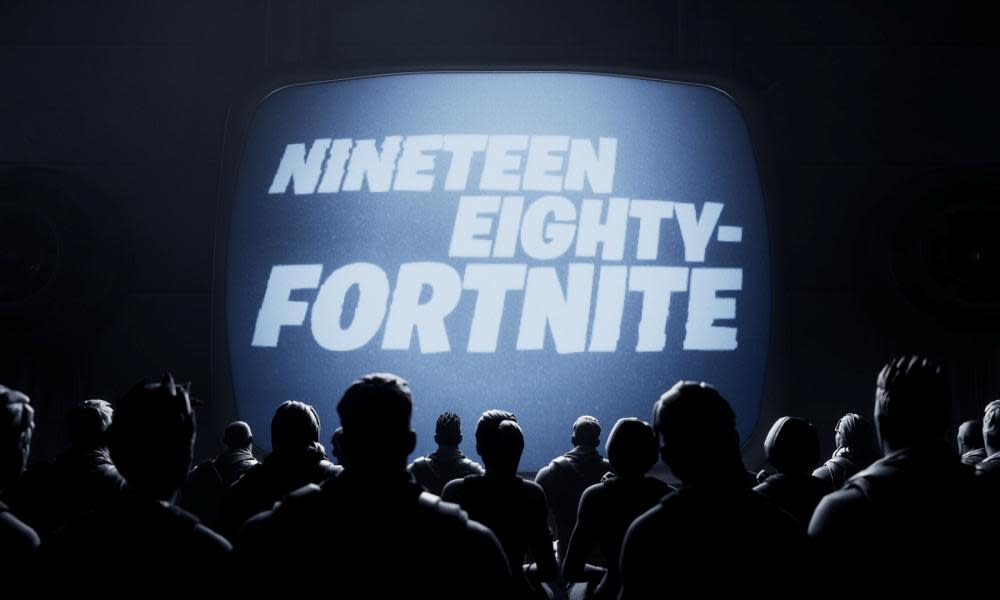Fortnite maker Epic plays David to Apple's Goliath in App Store showdown

In Fortnite, the astronomically successful video game from Epic Games, 100 players skydive on to an island and enter into one-on-one combat until only the winner is left standing.
The formula has bestowed the game with once-in-a-generation success: it has more players than Twitter has users, it has minted its own millionaire celebrities, and it has turned Epic, formerly an also-ran provider of development tools, into one of the most successful companies in gaming.
Now, the same mechanics – head-to-head competition and a winner-takes-all ending – have forced Epic into a vicious public fight with one of the only companies in the world that could be the Goliath to its David: Apple.
Epic’s founder, Tim Sweeney, has long been vocally critical of Apple’s requirement that the company pay 30% of its iPhone revenues as fees for selling in-game currency – used to buy new characters and costumes – to people playing on their phones.
On Thursday Epic decided without warning to begin offering its own payment service for Fortnite players, with a 20% cut in cost if they decided to bypass Apple’s in-app purchases.
Apple responded by pulling Fortnite from the App Store. Epic hit back with a lawsuit and a spoof advert casting Apple as Big Brother in “Nineteen Eighty-Fortnite”.
“Apple’s removal of Fortnite is yet another example of Apple flexing its enormous power in order to impose unreasonable restraints and unlawfully maintain its 100% monopoly over the iOS in-app payment processing market,” the company said in a statement.
The conflict was perfectly stage-managed by Epic, which also launched a simultaneous salvo at Google. The company has doggedly invested its enormous windfall from the success of Fortnite in trying to bypass digital storefronts from Apple, Google and Valve, who take what it sees as an unfairly large cut of sales, and it has been cheered on by unlikely supporters.
“We applaud Epic Games’ decision to take a stand against Apple and shed further light on Apple’s abuse of its dominant position,” a Spotify spokesperson said late on Thursday. “Apple’s unfair practices have disadvantaged competitors and deprived consumers for far too long. The stakes for consumers and app developers large and small couldn’t be higher and ensuring that the iOS platform [Apple’s operating system] operates competitively and fairly is an urgent task with far-reaching implications.”
Spotify, like Epic, has taken legal action against Apple, filing a complaint with the EU’s competition commission alleging unfair practices.
Video games are one of the only sectors in which all five of the world’s largest companies compete: as well as Apple, which offers a subscription service for gamers, Microsoft owns Xbox, Google runs the video game streaming service Stadia, Facebook recently launched a standalone app for watching, discussing and playing games, and Amazon owns a games studio.
Typically these companies, each of which has as much to fear from competition regulators as they do to gain, have been cautious in making direct attacks on each other. But the continued growth of the gaming market has started to fracture that detente.
Last week Apple forced Microsoft to cut a new service, xCloud, which it had hoped to launch on iOS this summer. The app, which allows users to stream video games from Microsoft’s data centres, was barred for breaching App Store rules around “submitting games individually for review, and appearing in charts and search,” Apple said.
Microsoft responded: “[Apple] consistently treats gaming apps differently, applying more lenient rules to non-gaming apps even when they include interactive content.”
A day later, Apple’s gaze turned to Facebook, barring it from launching Facebook Gaming, an app for streaming video and playing mini games. Again, Facebook responded with a rare public attack. “Apple rejected the app claiming the primary purpose of the Facebook Gaming app is to play games,” Facebook said. “It’s not. ~95% of app activity on Android is from watching live streams. We shared this stat with Apple, but no luck.
“We even appealed the guideline under the new app review process ... We did not receive a response. Ghosted? [Shrug emoji] We can afford to spend ~6 months grinding thru Apple reviews, but many others can’t.”
Google didn’t even try: its Stadia streaming service launched on iPhones without the ability to play games at all.
However, the opposition of Apple’s mammoth competitors might matter less than the lawsuit from the comparatively small Epic Games. The company can show that Apple’s actions effectively raise prices – a regular linchpin of American antitrust regulation – and unlike many competitors it can afford to keep Fortnite from the App Store indefinitely.
Thanks to its battle royale video game, after all, Epic knows how important it is to be the last one standing.


